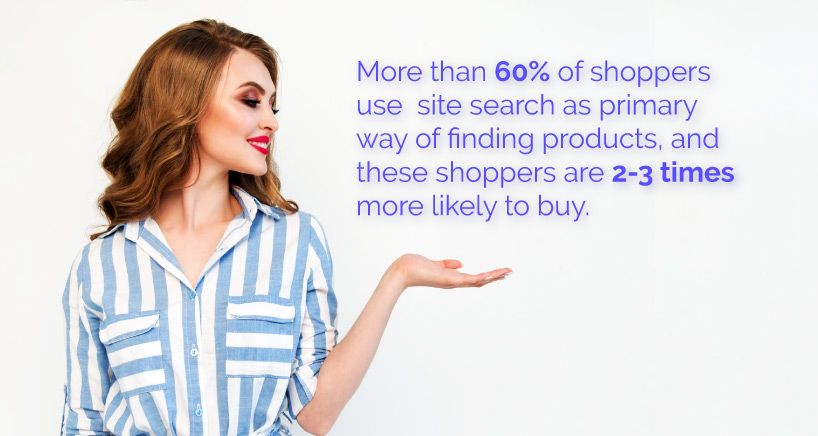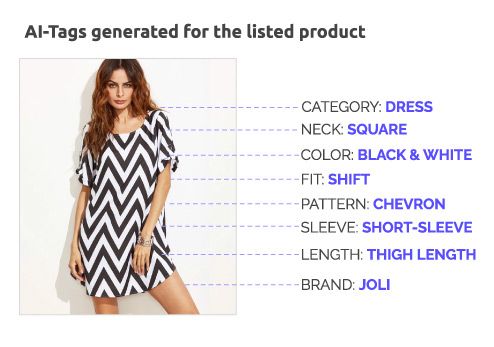The retailer is a 150+ year old premier omni-channel multi-brand retailer, with sales of $25 billion across offline and online presence.

Ecommerce data standardization is indispensable for optimizing business processes. Businesses depend on this product data coupled with advanced analytics, to expand their understanding of consumer behavior as well as to make qualitative decisions. This means data need to be in consistent, manageable conditions.
Inconsistent product data regularly slows down the digitization of products and the time it takes to get a product to the shopper (in terms of weeks to months).
Bad data has cost businesses $3.1 Trillion in US alone this past year.
Inconsistent product listing
Problem:
Inconsistent or inaccurate product listing entered by multiple vendors or third-party sellers as a result of a lack of knowledge, duplication or oversight.
Solution:
With VueTag’s state-of-the-art image classification capabilities, deeper attribute-related information that describe products were also extracted. VueTag’s Natural Language Processing (NLP) capabilities classifies and extract features from differing sources of metadata about the product and its attributes.

Discrepancies in information from various sellers
Problem:
Data has to be exported to and imported from various sources, and from a wide range of sellers. These sellers often have different formats, vocabularies, and methods of documenting product information.
Solution:
VueTag audits data entries to identify missing data, incomplete metadata or duplication of images across sellers. It helps reconcile visually and textually extracted attributes. This highlights inconsistencies and/or boost the confidence and accuracy of attributes that have contextual cues from the different sources.
Manual Quality Assessment (QA)
Problem:
Manually validating metadata tags is prone to human errors like spelling mistakes, incorrect mapping, duplication of information and oversight.
Solution:
With QA, algorithms improved, improving accuracy over iterations of feedback. The algorithms also identified confidence cut-off beyond which margin of error was acceptable, reducing the need to QA
With the current tagging process & efficiency, VueTag was able to correct 51.82% of total tags processed in the live site—i.e., their existing product catalog, improving data quality in the process.
Case-specific product tagging
Problem:
Product content is often highly refined to cater to every business’ target audience and shopping patterns. Generic product content in these contexts can end up harming sales and engagement.
Solution:
In addition to the rich attributes extracted by VueTag, attributes are mapped to specific taxonomy along with confidence values for the extracted attributes, improving the predictions made.
For this client, VueTag predicted tags for over 3 Million products across categories over a period of 3 months. Over this period, VueTag added 69 new attribute, values covering 18 attributes & 21 Product types across 3 categories.
I understand that Vue.ai® may reach out to me with relevant communication.
By clicking ‘Request a Demo’, you agree to our Privacy Policy.